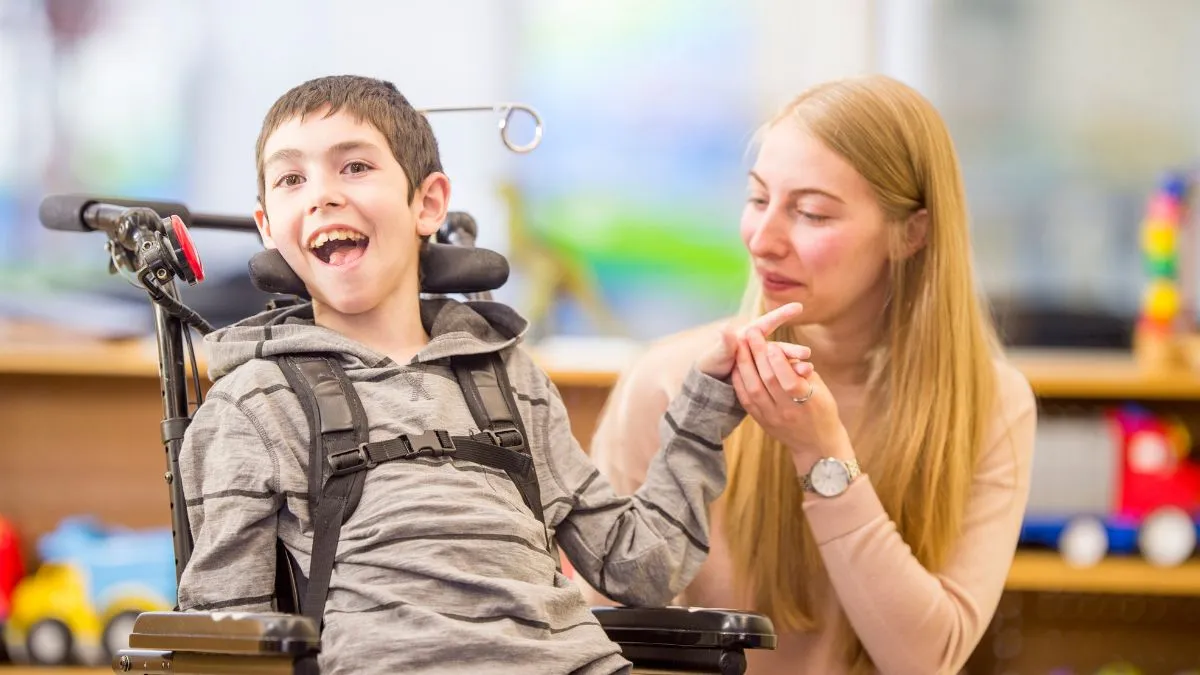As the world continues to evolve, sodoes our understanding of inclusion, especially for specially abled individuals. With Global Accessibility Awareness Day (GAAD) 2025 fast approaching, we are seeingan exciting shift in how we think about accessibility.It's no longer simply about providing access; it’s about fostering a sense of belonging. This article delves into the transformative journey with insights fromShruti Swaroop, Founder of Embrace Consulting, Co-Founder of International inclusion Alliance.
It is important to find a place where you feel trust, you feel belonging and stability.
Bojan Krkic
Global Accessibility Awareness Day (GAAD) 2025 marks a significant turning point in the global discourse on disability inclusion. Moving beyond the foundational principle of "access," this year’s theme—“Not Just Access - Belonging” is a first step towards enabling every human being and, most importantly, people in positions of power and influence to support the concept of belonging.
-2025-1746211299001.jpg)
Access to infrastructure is the first step towards creating a world of inclusion; however, we have seen that to create a world that truly supports people with disability, one needs to start with the feeling of acceptance and respect towards people from all backgrounds.
While access is the baseline, belonging is the goal.
True belonging comes when people do not have to change themselves to fit in and are comfortable being themselves. And belonging is not achieved through compliance alone - it requires culture, empathy, and genuine inclusion in every layer of design, leadership, storytelling, and policy.
At the heart of this mindset shift is a simple but powerful idea: accessibility is not just about removing barriers - it’s about building relationships. It’s about changing the default assumption from “we made room for you” to “you were always meant to be here.” Belonging cannot be engineered by checklists; it must be cultivated through intention, equity, and trust.

Through our years of experience having supported organisations and people to be accepted and bring in a side that accepts people for who they are, we have seen that acceptance and thus belonging is largely dependent on our early years and how we view ourselves and the world around us.
Don't Miss:How Companies Can Ensure Accessibility For People With Disabilities: Expert Tips Given Inside
To achieve this:
- Belonging has to move from a terminology to reality - it has infused in strategy and day to day actions
- Leaders must walk the talk and be visible role models for inclusion.
- And we must recognise that belonging is social justice in action - not just good policy.
Belonging is not about legacy—it’s about who we are. It defines the kind of world we choose to live in and the values we choose to embody.
The truth is: Belonging starts with self-acceptance. Your level of belonging, in fact, can never be greater than your level of self-acceptance, because believing that you're enough is what gives you the courage to be authentic, vulnerable and imperfect.
Brene Brown
If you liked this story, then please share it. To read more such stories, stay connected to HerZindagi.
Image Credits: Canva

Take charge of your wellness journey—download the HerZindagi app for daily updates on fitness, beauty, and a healthy lifestyle!


Comments
All Comments (0)
Join the conversation